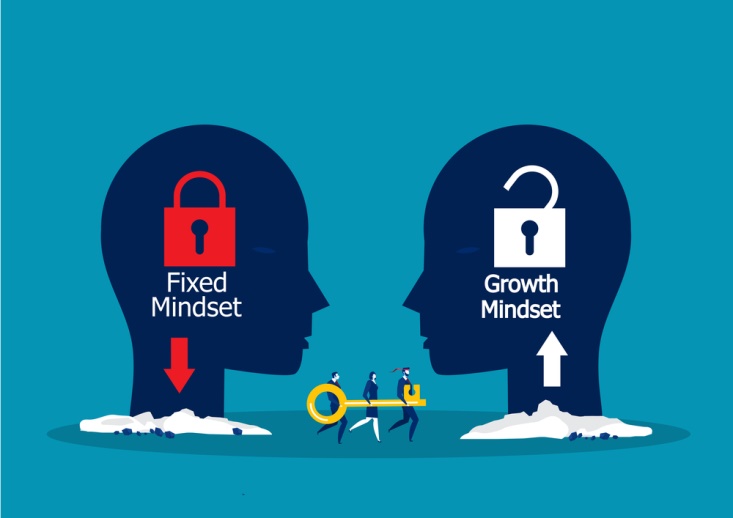
In the dynamic world of business, where constant change and challenge are the norms, the mindset of leaders and executives plays a pivotal role in shaping their organizations’ success. Renowned psychologist Carol Dweck’s groundbreaking research on mindset detailed in her 2008 groundbreaking book: “Mindset: The New Psychology of Success” offers profound insights into how our beliefs about our abilities influence our behavior and success.
Understanding Mindset: Insights from Carol Dweck
Carol Dweck’s work on mindset revolutionized our understanding of how our perceptions of intelligence and abilities impact our success. Dweck categorizes mindset into two distinct types: fixed and growth. Whether you have a fixed mindset or a growth mindset, your mindset will profoundly influence how you approach challenges, learning, and failure, consequently impacting your overall performance and achievement.
Fixed Mindset vs. Growth Mindset
A fixed mindset is rooted in the belief that intelligence and talents are innate and immutable traits. People with a fixed mindset perceive their abilities as static, leading to a desire to appear smart and a tendency to avoid challenges that might expose their perceived inadequacies. They often see effort as fruitless in areas where they believe they are naturally unskilled, and they perceive feedback and criticism as personal attacks. This mindset in business often creates a fear of failure, stifles innovation, and is inflexible.
Conversely, a growth mindset thrives on challenge and sees failure not as evidence of lacking ability and/or intelligence but as a springboard for growth and for stretching existing abilities. People with a growth mindset believe their talents and abilities can be developed through dedication and hard work. This perspective fosters a love of learning, resilience, and a drive for self-improvement, quintessential traits for business leaders navigating the complex corporate landscape.
7 Ways for Cultivating a Growth Mindset: Leadership Strategies for Success
Embrace Challenges: To foster a growth mindset, start by embracing challenges as opportunities for development rather than obstacles. Recognize that stepping out of your comfort zone is essential for growth and innovation. Encourage your team to tackle new projects and view setbacks as learning experiences.
Persist in the Face of Setbacks: Resilience is a hallmark of the growth mindset. When faced with difficulties, focus on perseverance and learning from mistakes. Instead of giving up, analyze what went wrong and how you can improve. This resilience not only sets a powerful example for your team but also drives progress. As the leadership expert John C Maxwell states: “sometimes you win and sometimes you learn.”
Effort is the Path to Mastery: Acknowledge that effort is a key aspect of skill development and achievement. Reward effort and progress, not just results (although, unfortunately, most organizations only reward results). This approach encourages continuous learning and improvement, vital in a business environment where adaptability is key.
Learn from Criticism: Constructive criticism is a valuable tool for growth. Encourage open feedback and create a culture where constructive criticism is welcomed and acted upon. This openness to feedback fosters a learning environment and continuous improvement.
Be Inspired by the Success of Others: Instead of viewing others’ success as a threat, see it as an opportunity to learn and be inspired. Promote a culture of shared learning and celebrate the achievements of others as examples to emulate. This will help develop a culture of abundance instead of scarcity.
Promote a Culture of Learning: Encourage continuous learning and professional development. Invest in training programs, encourage mentorship, and provide resources that help your team expand their skillset. A culture that values learning supports a growth mindset at all organizational levels.
Reflect and Reframe: Regularly reflect on your experiences and mindset. Recognize when you’re operating from a fixed mindset and consciously reframe your thoughts to align with a growth mindset. This self-awareness is crucial in maintaining a growth-oriented approach.
Conclusion
Incorporating a growth mindset into your leadership style is not just about personal development; it’s a strategic move that can drive your organization forward. As Carol Dweck’s research shows, mindset is not a minor personality quirk; it forms the very foundation of how we approach challenges, interact with others, and ultimately succeed in all our endeavors. By fostering a growth mindset, leaders will create a culture of adaptability, resilience, and continuous improvement, essential for thriving in today’s ever-evolving business landscape. Remember, the mindset you adopt profoundly shapes your journey and that of your organization. Choose growth, choose success.
Dr. Patty Ann
